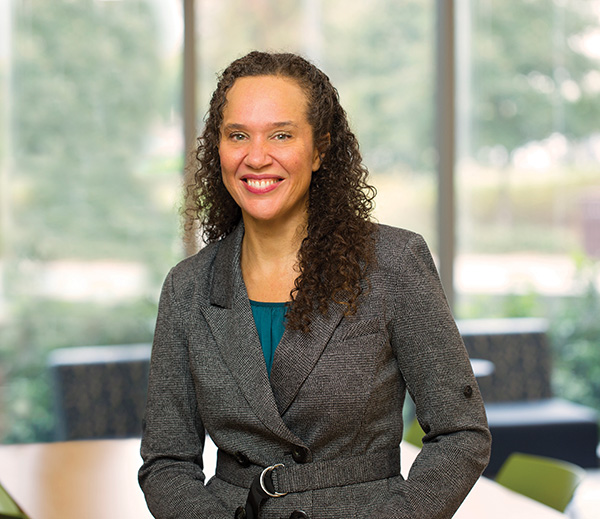
Understanding microaggressions, improving retention
Diversity leader examines experiences of students of color
Receiving blank stares or rolling of eyes from white classmates when a student of color contributes to a class discussion. Deleting a student of color’s contribution to a group project or assignment.
Overt racism and discrimination are easy to spot. But microaggressions — the daily slights and indignities people from a stigmatized group may experience based on their identity — are subtler.
“It goes from devaluing someone to outright acts of sabotage and it happens across health professions schools — even those that say they focus on diversity and inclusion,” explains Piri Ackerman-Barger, associate dean for Health Equity, Diversity and Inclusion at the Betty Irene Moore School of Nursing at UC Davis. “When students experience put-downs and microaggressions, energy diverts away from the frontal lobe of the brain. It can affect short-term memory, the ability to process information and intellectual performance.”
Ackerman-Barger’s academic interests relate to health equity and social justice. She conducts research and serves as a national consultant and speaker on strategies to help underserved and underrepresented groups in nursing and medical schools thrive academically.
“Students I’ve interviewed across the country tell me they expect to be valued and respected, but they arrive to find it’s not all that inclusive,” Ackerman-Barger says. “It’s an added layer of betrayal that feels like a sucker punch.”
Currently, Ackerman-Barger serves as program director for a scholarship program to enroll and retain full-time students from disadvantaged backgrounds. The program, funded by a $2.6 million grant from the Health Resources & Services Administration (HRSA), also exposes students to primary care and placements in Medically Underserved Communities.
She also collaborates with an interprofessional team from the Center for a Diverse Healthcare Workforce at UC Davis, as well as nursing and medical schools from six other universities, in a study funded by the HRSA to advance policies, practices and instructional strategies that support diversity in health professions schools.
“Inclusive learning environments are necessary to ensure that underrepresented minority students not only survive school, but also thrive and reach their full academic potential,” Ackerman-Barger says. “Diversity is central for all health professions to mitigate health disparities and improve patient outcomes.”
Ackerman-Barger approaches her work through the lens of a nurse, an educator and a researcher. Each of these identities is crucial because focus on health equity and educational excellence with grounding in data that uses a mixed-methods approach. She also brings her personal experience and identity as a mixed-race woman.
“I’ve lived my entire life living in that ambiguity of race and ethnicity. It wasn’t until my 40s that I realized I define my identity and I do not let others define it for me,” she says. “I want all health professionals to see themselves as essential to the process of health equity.”

